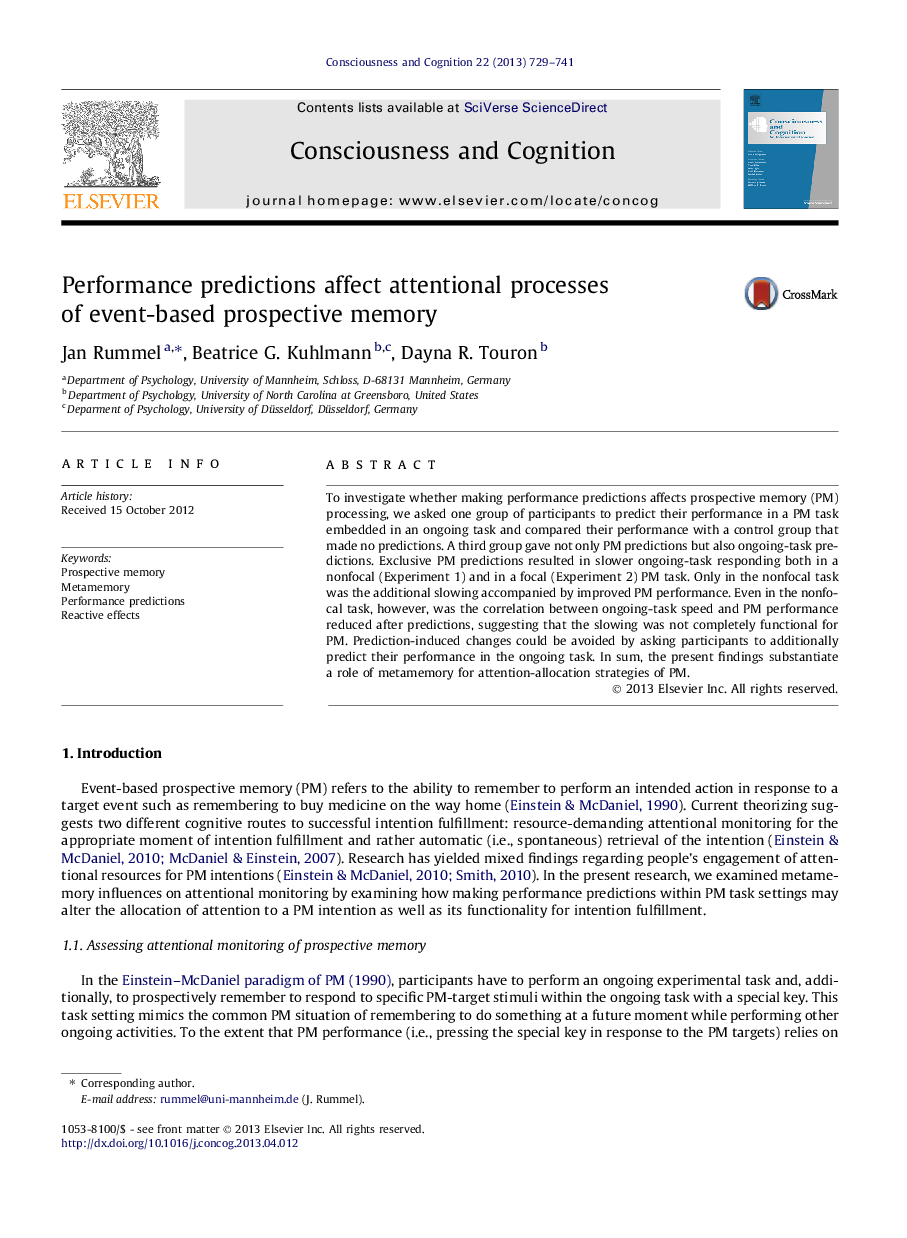| Article ID | Journal | Published Year | Pages | File Type |
|---|---|---|---|---|
| 10458451 | Consciousness and Cognition | 2013 | 13 Pages |
Abstract
To investigate whether making performance predictions affects prospective memory (PM) processing, we asked one group of participants to predict their performance in a PM task embedded in an ongoing task and compared their performance with a control group that made no predictions. A third group gave not only PM predictions but also ongoing-task predictions. Exclusive PM predictions resulted in slower ongoing-task responding both in a nonfocal (Experiment 1) and in a focal (Experiment 2) PM task. Only in the nonfocal task was the additional slowing accompanied by improved PM performance. Even in the nonfocal task, however, was the correlation between ongoing-task speed and PM performance reduced after predictions, suggesting that the slowing was not completely functional for PM. Prediction-induced changes could be avoided by asking participants to additionally predict their performance in the ongoing task. In sum, the present findings substantiate a role of metamemory for attention-allocation strategies of PM.
Keywords
Related Topics
Life Sciences
Neuroscience
Cognitive Neuroscience
Authors
Jan Rummel, Beatrice G. Kuhlmann, Dayna R. Touron,
